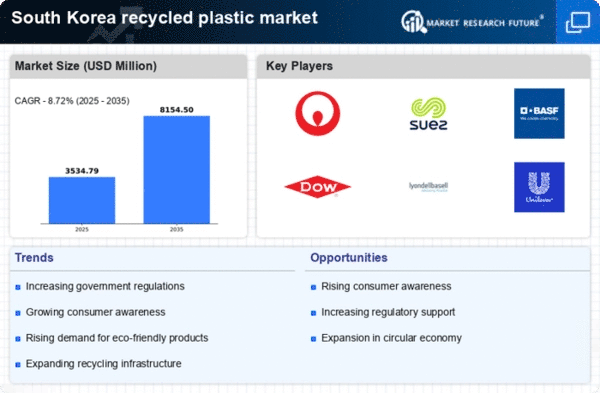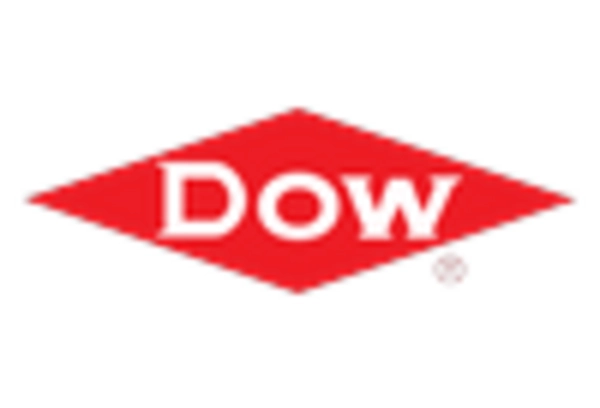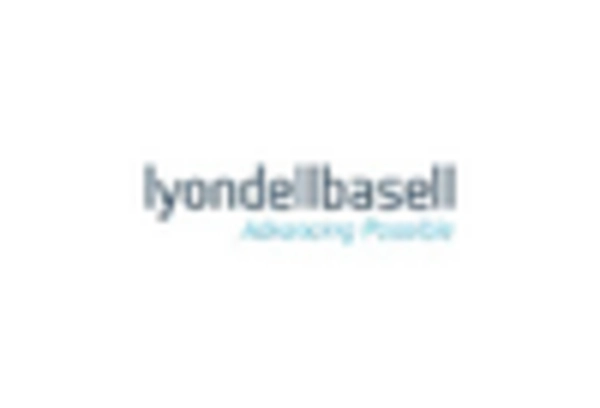The recycled plastic market in South Korea is characterized by a dynamic competitive landscape, driven by increasing environmental awareness and regulatory pressures. Major players such as Veolia (FR), BASF (DE), and Dow (US) are actively shaping the market through strategic initiatives focused on sustainability and innovation. Veolia (FR) has positioned itself as a leader in waste management and recycling solutions, emphasizing technological advancements in recycling processes. Meanwhile, BASF (DE) is leveraging its expertise in materials science to develop high-performance recycled plastics, thereby enhancing its competitive edge. Dow (US) is also making strides in this sector, focusing on partnerships and collaborations to expand its recycling capabilities and product offerings, which collectively contribute to a more competitive environment.Key business tactics employed by these companies include localizing manufacturing and optimizing supply chains to enhance efficiency and reduce costs. The market structure appears moderately fragmented, with several key players exerting influence over various segments. This fragmentation allows for a diverse range of products and services, catering to different customer needs while fostering competition among established and emerging players.
In October Veolia (FR) announced a significant investment in a new recycling facility in South Korea, aimed at increasing its processing capacity for post-consumer plastics. This strategic move is likely to enhance Veolia's operational efficiency and strengthen its market position by meeting the growing demand for recycled materials. The facility is expected to utilize advanced sorting technologies, which could set a new standard for recycling operations in the region.
In September BASF (DE) launched a new line of high-quality recycled plastics derived from post-consumer waste, targeting the automotive and packaging industries. This initiative underscores BASF's commitment to sustainability and innovation, as it seeks to provide customers with eco-friendly alternatives without compromising on performance. The introduction of these products may significantly influence market dynamics by encouraging other players to enhance their offerings in response to consumer demand for sustainable materials.
In August Dow (US) entered into a strategic partnership with a local South Korean recycling firm to enhance its supply chain for recycled plastics. This collaboration aims to improve the efficiency of recycling processes and expand Dow's access to high-quality recycled feedstock. Such partnerships are indicative of a broader trend in the industry, where companies are increasingly recognizing the value of collaboration to achieve sustainability goals and enhance their competitive positioning.
As of November current trends in the recycled plastic market are heavily influenced by digitalization, sustainability initiatives, and the integration of AI technologies. Strategic alliances are becoming more prevalent, as companies seek to leverage each other's strengths to navigate the complexities of the market. The competitive landscape is shifting from traditional price-based competition to a focus on innovation, technology, and supply chain reliability. This evolution suggests that companies that prioritize these aspects will likely emerge as leaders in the market, driving forward the agenda of sustainability and efficiency.
















